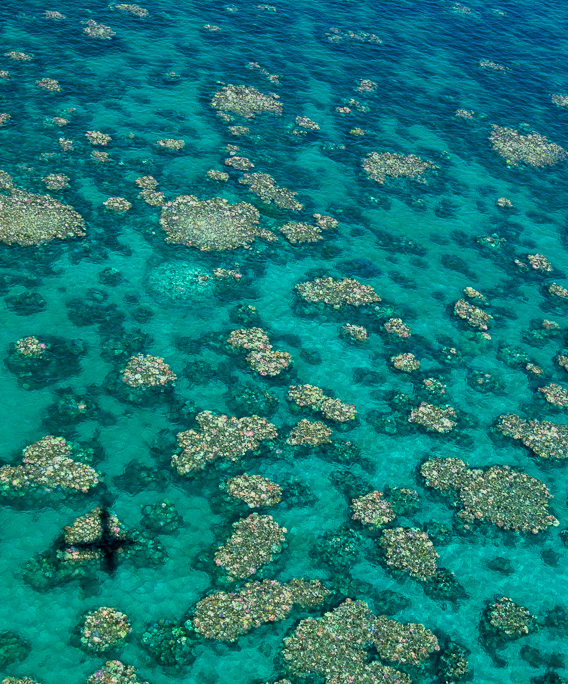Reef review details damage
 A review of nearly 2,000 coral reefs has found that marine reserves struggle, but are much better than no protection at all.
A review of nearly 2,000 coral reefs has found that marine reserves struggle, but are much better than no protection at all.
Researchers evaluated fish biomass and the presence of top predators on coral reef sites across 41 countries, states, and territories.
They used a new way of measuring the human pressures, such as fishing and pollution, to study the effects these are having on fish on the world’s reefs.
The study involved 37 scientists, and data from the citizen science project Reef Life Survey (RLS) in conjunction with data from researchers all over the world.
“As has been clear from a range of previous studies, fish stocks are most reduced on reefs that are easily accessed by fishers,” IMAS researcher Professor Graham Edgar said.
“The study found marine reserves with high human pressure typically have only a quarter of the quantity of fish as in distant reserves.”
However, while reserves in more heavily populated regions of the tropics do not carry as many large fish as remote reserves, the fact that surrounding areas are heavily fished means that recovery is greater than in isolated areas.
“Consequently for most fisheries species, marine reserves have the greatest positive effects where human pressures in surrounding areas are medium to high,” Professor Edgar said.
Professor Josh Cinner from James Cook University said the study highlights the benefits and limitations of implementing key coral reef conservation strategies in different types of locations.
“Our research shows where managers will be able to maximise certain goals, such as sustaining top predators or improving the biomass of key fisheries species, and likewise, where they will be wasting their time,” Professor Cinner said.








 Print
Print